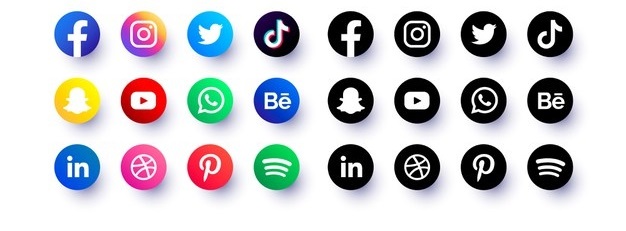Since the beginning of the onslaught of the novel coronavirus pandemic, social media has been an outlet of news regarding this crisis. Many people have turned to social media to gather more information regarding the COVID-19 virus and its effects on health.
In this The Straits Times news, we are covering the effects of social media on global panic during these trying times.
The advancement of technology and the rise of social media has many advantages including keeping people safe and staying informed. However, the same tool that we are addicted to also became a platform for shared misinformation and fake news that can harm as well aside from the virus.
Even though younger generations can have less complications from contracting the virus, they are the key to lessen the transmissions and the impact of the effects of the pandemic. They are also the generation who uses more social media like Facebook, Instagram, Tik Tok and Twitter.
Any science-based content is viewed as worthy of being shared
In a study conducted by the World Health Organization, people are asked if they will share any information regarding the COVID-19 virus and its effects on human health. The result is that 43.9% of people will share any coronavirus-related content on social media especially if they are “scientific”.
This shows how much the information travels faster nowadays in the era of the internet. The study shows that people will most likely share any science-based information on social media regardless if they are not proven or not true.
The utilization of social media has escalated during the pandemic
In 2020 alone, the usage of social media has increased especially during the months where the lockdowns are stricter and protocols about restriction are enforced. During these times, the borders are closed and people are instructed to stay indoors and the mobility of people is reduced.
Because of the lockdowns where people are forced to stay inside, many people have turned to their devices to be entertained. During the months of lockdown, the usage of streaming services and online gaming increased as well as the usage of social media.
People have more worries other than getting infected
Most people would think that younger people would be more “too complacent” and “unaffected” during this pandemic. However, according to the data from the same study conducted by the WHO, younger people are most likely to get affected by the effects of the pandemic, especially the risks of getting infected by the virus.
Aside from contracting the virus, the respondents showed that people are more concerned about other effects of the pandemic such as, being worried that their relatives and friends might get infected, unemployment and the crashing down of the global economy.
The social media has a huge effect on mental health during the pandemic
The spread of wrong information about the pandemic might cause more harm than help. These fake information have caused fear and panic to the people during the first few months of the pandemic. The sudden shift in the dynamics of human mobility due to the mandatory measures of the world governments to curb the spread of the virus has also caused anxiety and fear.
Isolations and lack of human contact also worsen the anxiety caused by the virus. The lockdowns, business closure, unemployment and uncertainty has detrimental effects to the mental health of people during these times.
The Takeaway
Now that we learned the negative effects of the spread of misinformation about the virus, we can now think of the solutions to prevent this. Clearly, what we need is collective social responsibility about what we share on social media and Singapore news. Not only that it can affect us, but it can also affect other people as well.





